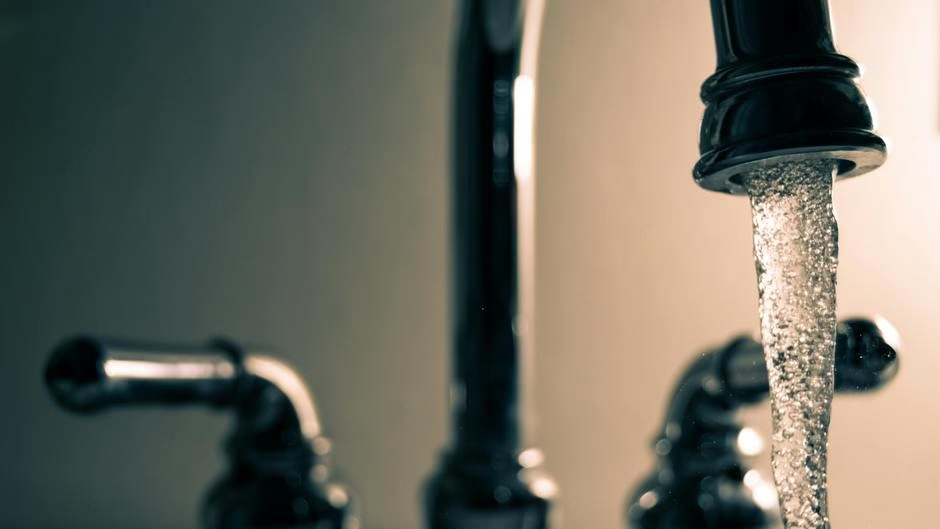Hard water can silently damage your home, skin, and appliances. Learn 10 warning signs of hard water, how to confirm it, and what you can do to protect your home.
Table of Contents
Introduction
Have you ever seen a white, chalky crust on your faucets? Does your soap not get bubbly? Does your hair feel dry even with conditioner? You might have hard water in your home.
Hard water is not a health risk. But it can cause many problems. It can damage your pipes and appliances. It can irritate your skin. It can make your bills go up. These issues start small but can get worse over time.
This article will show you 10 clear signs of hard water. We will explain why they happen. We will also share ways to fix the problem.
What Is Hard Water?
Hard water has a lot of dissolved minerals in it. The main minerals are calcium and magnesium. Water picks up these minerals from the ground and rocks.
- Temporary hardness comes from minerals that can be removed by boiling the water.
- Permanent hardness comes from minerals that stay in the water even after boiling.
Over time, these minerals can form scale. This scale can make cleaning harder and cause other issues.
10 Warning Signs of Hard Water in Your Home
1. White or Chalky Buildup on Faucets
A clear sign of hard water is a white or chalky crust on your sinks, showerheads, and taps. This is called limescale. It is made of hardened minerals.
- Why it happens: When water dries, the minerals are left behind.
- What it looks like: A rough ring around the faucet, a cloudy film inside your kettle.
- Long-term effect: Thick scale can clog appliances like coffee makers and dishwashers. This makes them work poorly and wear out faster.
2. Soap Scum in Bathrooms and Kitchens
Do your shower walls, tub, or sink look dirty soon after you clean them? Hard water might be the cause.
- Why it happens: The minerals in hard water mix with soap. This makes a sticky film called soap scum.
- Everyday impact: You use more soap and cleaner. But the film is hard to remove.
3. Soap and Shampoo Won’t Lather
Does your soap not make many suds? Does your shampoo feel like it doesn’t wash out?
- Cause: The minerals stick to the soap. This stops it from bubbling up.
- Result: Your skin might feel sticky. You may not feel fully clean.
4. Dry, Itchy Skin After Showering
Many people think their dry skin is from the weather. But hard water can cause skin irritation.
- Effect on skin: Minerals can remove your skin’s natural oils. This leaves skin dry and itchy.
- Scalp issues: A mineral coating can stop your scalp from getting moist. This can lead to dandruff.
5. Dull, Frizzy Hair
Does your hair feel dry and frizzy, even with good products? Hard water could be why.

- Why it happens: Minerals coat your hair. This stops conditioner from working.
- Impact: Hair color fades. Your hair loses its shine and can break easily.
- Solution hint: A shower filter can help.
6. Stiff, Dull Laundry
Do your towels feel rough? Do your clothes look dull? Hard water can cause this.
- Mechanism: Minerals make detergent less effective. Residue gets stuck in the fabric.
- Effects: Clothes feel stiff and look gray. Towels are less absorbent.
- Long-term problem: Clothes wear out faster.
7. Spotted or Cloudy Dishes
Your dishwasher can be hurt by hard water.
- Visible signs: Glasses look cloudy. Dishes have spots.
- Why: Minerals are left on dishes when the water dries.
- Severe cases: Glasses can get permanent marks and lose their clear look.
8. Low Water Pressure
Is your shower stream weak? Do your faucets run slow? Hard water buildup might be blocking your pipes.
- What happens: Minerals build up inside pipes over time. This makes the space for water smaller.
- Symptoms: Water pressure is low in some taps. Showers spray weakly.
- Risk: Bad scaling can mean you need to replace pipes, which is costly.
9. Appliances Not Working Well
Hard water can damage machines you can’t see.
- Affected appliances: Water heaters, dishwashers, washing machines.
- Signs: Machines take longer to run. They use more energy. They break down more.
- Scientific reason: Scale acts like a blanket. It makes water heaters less efficient. It clogs parts in dishwashers.
10. Higher Bills
Hard water can cost you money.
- Energy waste: A scaled water heater can use nearly 30% more energy.
- More repairs: Appliances break sooner.
- Hidden costs: You replace clothes, pipes, and appliances more often.
How to Confirm if You Have Hard Water
Test your water before you buy a solution:
- DIY Soap Test – Fill a clear bottle with water. Add a few drops of pure liquid soap. Shake it. If the water is cloudy and not bubbly, you likely have hard water.
- Test Kits – Use simple strips or drops from a store. They measure how hard your water is.
- Lab Test – Send a sample to a lab for a full report.
- Local Water Report – Your town may put out a yearly water quality report. Check it for hardness levels.
Solutions to Hard Water Problems
Water Softener Systems
The best long-term fix is a water softener. It uses a process to swap calcium and magnesium for sodium or potassium.
- Types of softeners:
- Salt-based softeners
- Salt-free conditioners (they stop scale but don’t take out minerals)
- Reverse osmosis systems for drinking water
👉 If you see these signs, think about getting a water softener.

